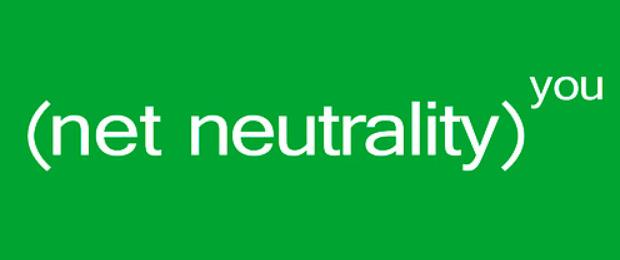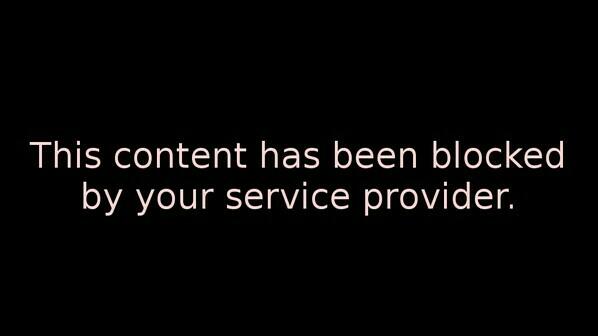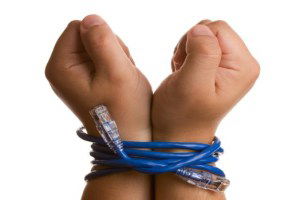
If you’re at all familiar with the Internet, you’re aware that it’s supposed to be “Free and Open”. Sure you pay your Internet Service Provider (ISP) money to access it, but in general you can find anything. From the scores to last night’s games, to recipes on your favorite snacks, everything is available. There are largely no measures in place to limit your ability to visit sites. “Net Neutrality” is basically unfiltered access to sites, regardless of who or what it is, without being for or against the content.
The FCC aims to change that.
In a 3-2 ruling[1] yesterday, 5/15/2014, the FCC has decided that Internet “Fast Lanes” are OK for ISPs to create and maintain. These fast lanes would allow ISPs to charge content providers (Netflix, Facebook, LinkedIn) for “priority” access. Those that choose not to, or can’t afford to pay, are automatically going to be at a disadvantage compared to larger companies. It’s (fairly) common knowledge that every 100 milliseconds (ms) of delay on a site loses customers. In 2006, Amazon posted a report stating that 100ms is equal to roughly 1% revenue[2]. To many people browsing sites, 100ms isn’t much. For people who are gamers, who rely on twitch-abilities, 100ms can be the difference between winning a match, and losing entirely.
Now imagine you’re not in control of how fast you can access content.
You’re already at the mercy of ISPs who are not upgrading hardware because they believe speeds are fast enough, aren’t updating their protocols to use the latest DOCSIS, or some other reason that they have decided is “good enough”. Comcast has been quoted saying that a majority of their customers don’t need more than 25Mbps[2]. Other countries across the world have a higher default, and many people don’t even understand how fast they could be potentially downloading/streaming things. This is largely due to the same problem that exists with automobiles – Often times people don’t know much about what’s under the hood, they just know that they need to drive.
You’re paying your ISP (Comcast, AT&T, etc.) for 50 Megabits per second (Mbps) speed. You notice when going to Comcast’s Internet TV service you get all 50Mbps. However, when you go to Netflix, you’re noticing that you’re barely able to stream in Standard Definition (SD). Did something happen? You check speedtest.net, you look into your wiring, everything looks good. Turns out Netflix didn’t pony up, and now Comcast is artificially throttling their speeds by not putting them in the “Fast Lane”. Does that mean you should be penalized?
These “Fast Lanes” are the same as putting a toll road in place. However, instead of charging you, the driver, they’re charging other people. If these other people don’t pay, you can’t drive quickly. You’re forced to drive at speeds they set, and there’s no going over it.

Local governments had already helped create local oligopolies years ago by providing breaks to cable companies when they were laying down copper and wiring, effectively shutting out competition. That’s why there aren’t many ISPs to begin with, and why new ISPs have to fight so hard to get into the game.
The goal of the Internet is to provide access to machines the world over. It’s not to be a utility that’s run by big businesses. Allowing these kinds of actions to move forward will severely limit our ability as consumers of the Internet. Different ISPs will be able to offer different packages depending on the deals they’ve struck with content providers. If you want Netflix, you might have to use ISP A. If you want HBO Go? ISP B. Sound bad? It is.
There’s a way to try to make a change in this, though.
You can reach out to your local representatives, the FCC, and anyone who will listen. I implore each and every one of you to take action, even if it’s only this one time. Call, e-mail, send letters. Tell the FCC and your local government that this is not OK. bgr.com has a full reading of the ruling by the FCC[3], and there’s information available about how to contact your local representatives[4][5]. There’s also a petition online that you can sign[6].
Additionally, it should be noted that some of the people in charge of the FCC aren’t fighting for our best interests. Tom Wheeler was a lobbyist for big cable companies before joining the FCC, and his plan for “Fast Lanes” shows he’d rather focus on earning a profit for the companies he used to lobby for, instead of working to help improve our standing as a technological power in a constantly changing and growing virtual society.
Please, for the sake of the Internet everyone loves to use, take action. If we don’t do something now, we’ll be paying for it later.
Links:
[1] – http://www.washingtonpost.com/blogs/the-switch/wp/2014/05/15/fcc-approves-plan-to-allow-for-paid-priority-on-internet/[2] – http://arstechnica.com/information-technology/2013/12/why-comcast-and-other-cable-isps-arent-selling-you-gigabit-internet/
[3] – http://bgr.com/2014/05/16/net-neutrality-fcc-proposal/
[4] – http://www.house.gov/representatives/find/
[5] – http://www.senate.gov/general/contact_information/senators_cfm.cfm
[6] – https://petitions.whitehouse.gov/petition/reclassify-internet-broadband-providers-common-carriers/4MrqLTlV
Article re-posted with permission from Robert Davis


